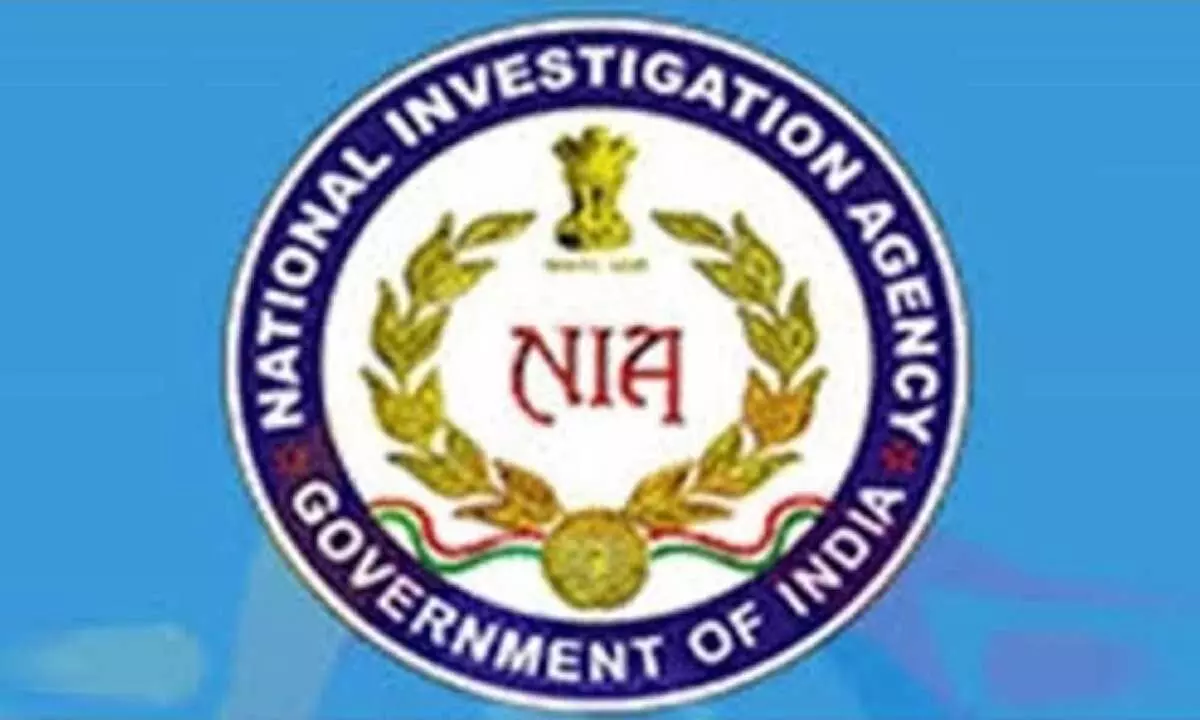NIA files charge sheet against 7 in Pune IS terror module case
Share :

The National Investigation Agency (NIA) on Sunday said it has filed a charge sheet against seven accused individuals in connection with the Pune IS terror module case.
New Delhi: The National Investigation Agency (NIA) on Sunday said it has filed a charge sheet against seven accused individuals in connection with the Pune IS terror module case.
In the charge sheet, the NIA mentioned that the accused were involved in the collection and raising of funds for the terrorist organisation and harboring known and wanted terrorist
The seven accused individuals, who have been arrested and named in chargesheet are Mohammad Imran Mohammad Yusuf Khan, Mohammad Yunus Mohammad Yakub Saki, both residents of Madhya Pradesh's Ratlam, Kadeer Dastagir Pathan, Seemab Nasiruddin Kazi, both residents of Pune, Zulfikar Ali Barodawala, Shamil Saquib Nachan and Aakif Ateeque Nachan, all residents of Maharashtra's Thane.
An NIA official said here that the agency has taken a significant step in the fight against terrorism by filing a chargesheet against seven individuals involved in a conspiracy related to the Islamic State (IS).
"The accused were involved in the collection and raising of funds for the terrorist organisation with the intentions to further its activities relating to terror and violence," the official said.
The official said that the accused were found to be organising terrorist training camps, harboring known and wanted terrorists, and committing acts preparatory to the fabrication of Improvised Explosive Devices (IEDs).
"They were also found in possession of IEDs, firearms, and ammunition," the official said.
The accused have been chargesheeted before the NIA Special Court in Mumbai, under various sections of the Unlawful Activities (Prevention) Act (UA(P) Act), Explosive Substances Act, Arms Act and the Indian Penal Code (IPC). The official saidnthat its investigation revealed that the accused persons in the instant case are members of the IS, a proscribed terrorist organisation under Schedule-I of the UA (P) Act 1967 and had hatched a conspiracy to further the terrorist activities of IS, with the intention to strike terror amongst the people and threaten the security, integrity, and sovereignty of India.
Investigations by the NIA uncovered a larger conspiracy with international connections and the involvement of foreign-based IS handlers in the ongoing case.
The investigation has unveiled a complex network of individuals committed to propagating the extremist ideology of IS in India.
The accused individuals, as part of this network, took an oath of allegiance to the self-styled Khalifa (leader) of the IS and were found to be involved in the fabrication of improvised explosive devices (IEDs).
Their intentions were to carry out acts of terrorism on Indian soil.
The accused conducted extensive reconnaissance missions (recce) across multiple states, including Maharashtra, Karnataka, Goa, Telangana, and others.
"Their aim was to identify potential targets for planting and detonating the fabricated IEDs, posing a significant threat to national security," the official said.
"They had meticulous plans for evading arrest following the potential blasts. As part of their escape plan, these individuals identified remote and deep forests as possible hideouts and used drones for reconnaissance to locate suitable camping locations while on the run. The accused were also found to be collecting funds from various sources, both within India and abroad, to finance their terror designs and plans, the official said. The case was initially registered as FIR on July 19 this year under various sections of the Indian Penal Code (IPC), the Arms Act, and the Maharashtra Police Act, 1951.
The NIA took over the peobe on August 30 this year.
The NIA arrested eighth accused Mohammad Shahnawaz Alam on November 2 for active involvement in promoting terrorist activities of the designated foreign terrorist organisation.







